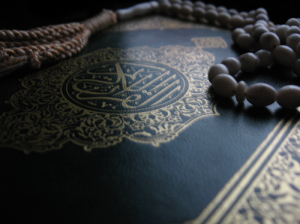 People usually feel embarrassed when they do something wrong in front of a crowd. The embarrassment increases as the size of the crowd increase. For example, a person will feel more embarrassed if his/her faults are revealed in front of a thousand people than in front of only 10 people. Imagine how you would feel if your faults were broadcasted through the media to all the people in your country.
People usually feel embarrassed when they do something wrong in front of a crowd. The embarrassment increases as the size of the crowd increase. For example, a person will feel more embarrassed if his/her faults are revealed in front of a thousand people than in front of only 10 people. Imagine how you would feel if your faults were broadcasted through the media to all the people in your country.
We are very particular in protecting our honour and dignity in this world, however, while disobeying Allah, are we mindful of the Day of Judgement when we will be standing in front of Allah in the presence of the whole humanity?
Besides the ordinary people, all the prophets will be present along with all the sahabah, martyrs and pious individuals. How embarrassing it will be if they see us standing in front of Allah as sinners! Besides the whole humanity, how bad it is if we are to stand in front of Allah alone as a disobedient servant? Therefore, to avoid those major humiliations, we should avoid committing sins in this world.
Forgive me ya Allah, as i remember not what was i send for, forgive me ya Rabbil alameen (The Lord of the universe), as i indulge myself in sins which you forbid for, the acts i committed which i cried for, forgive me ya Ghaffar (The forgiver), for not thanking all the things you blessed me for, forgive me ya Jabbar (The Compeller), for not taking the path You wished for, forgive me ya Allah, as I keep going my sinful ways for.
Forgive me ya Allah, my creator, my sustainer, i kneel down on the ground and beg for your mercy, You are the merciful, You are the forgiver, so forgive me for my mistakes which I committed, give me good sense, Give me the courage and patience to remain on the right path ever…
Ya Allah,,,! guide me to the stright way, the way of those on whom you have bestowed your grace . Not the way of those who earned your anger nor of those who went astray. Aameen,,,









